Gardening for mental health: how the 'green pill' can benefit well-being
We talk to experts in the field about the advantages of getting outdoors and tending to nature

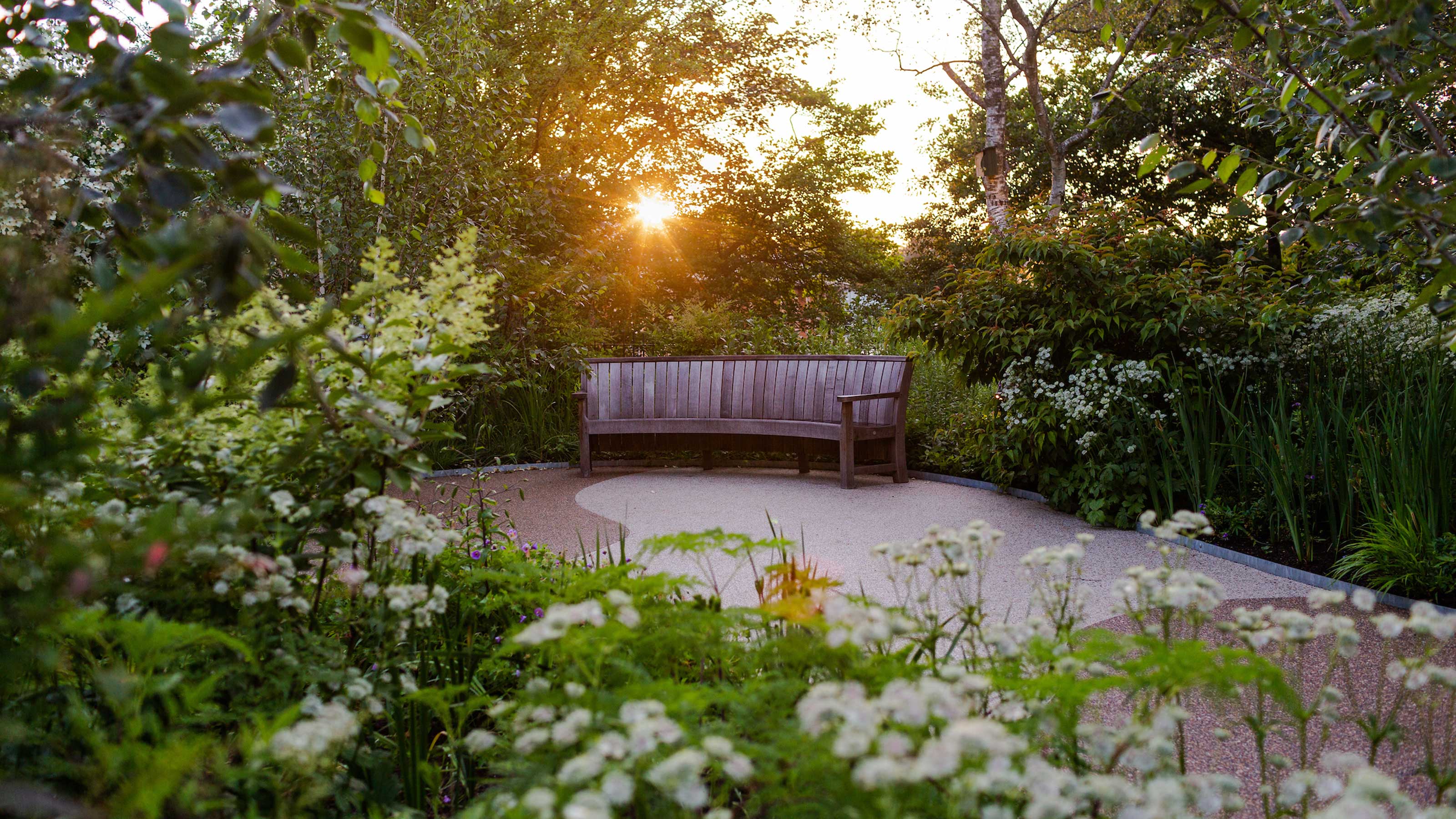
It's crucial not to overlook the deeper benefits of a garden. And by that, I'm talking about the wonders they can do for our mental health.
We often talk about the hottest new garden trends – be it à la mode fence colors or furniture – or how to design functional, family-friendly spaces for firing up the BBQ. Of course, all of this allows us to elevate our lifestyles and channel our sense of style into our surroundings. But, our gardens can also be a place that nourishes our well-being, which is particularly important in light of the last two years.
As we all know, the pandemic has taken a huge toll on the nation. Loved ones have been tragically lost, long stretches of isolation have been endured, opinions and beliefs have been divided. Inevitably, it has affected many of us: research from mental health charity Mind reveals two in three adults say their mental health has worsened since the first national lockdown. But, Mind also discovered that getting outdoors is the most popular way to cope with the ongoing strain, with three-quarters of adults and young people acknowledging the advantages.
It's not just amid a global pandemic that fresh air has helped to heal. The benefits of the great outdoors have been recognized by many medical and therapeutic professionals, as well as people suffering from all sorts of physical and mental ailments, however severe they may be. As a result, charities and communities that focus on horticulture and well-being are becoming more widespread.
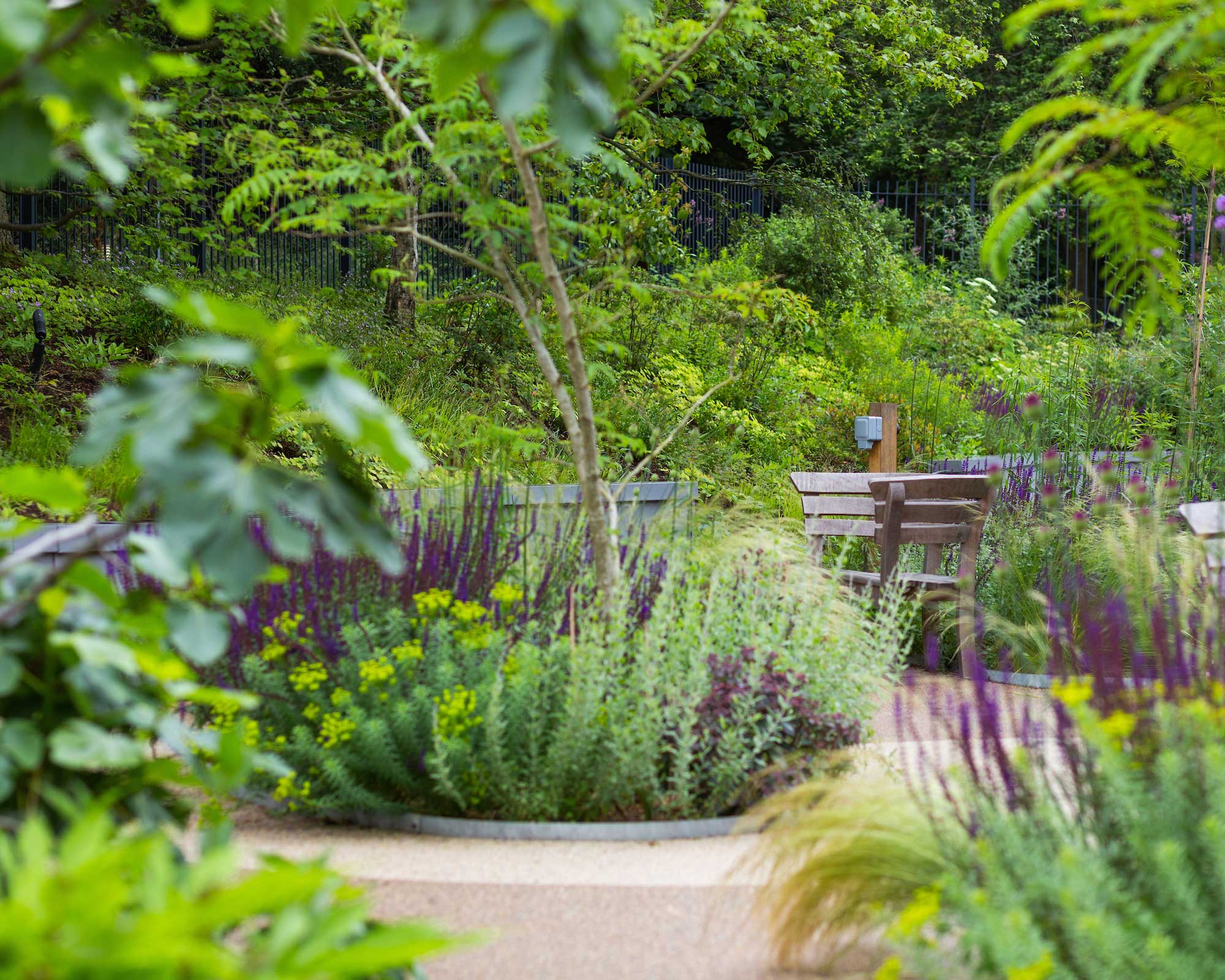
Why is gardening good for our well-being?
Dr. Sue Stuart-Smith, a psychiatrist and psychotherapist, recently wrote an award-winning book – 'The Well Gardened Mind', published by William Collins – which analyzes the relationship between gardening and mental health.
Sue reveals that, while researching her book, she interviewed people from mental health gardening projects – prisoners, veterans, and at-risk youth, as well as people suffering from depression, anxiety, and addiction. 'They spoke of gardening as a life-changing and in some cases, life-saving experience. Hearing their testimonies was deeply moving,' she says.
'The great power of gardening is the way that it answers to the emotional, physical, social, and spiritual aspects of life. The earthy physicality of gardening can be an antidote to looking at a screen, which many of us are doing more than ever these days, and there is also good evidence for the anti-stress effects of green nature on us.'
Dr. Olivia Chapple is the co-founder of Horatio's Garden, a charity that creates and nurtures beautiful sensory garden spaces in NHS spinal injury centers. She explains how she has personally found a sense of calm, distraction, and hope in nature throughout the pandemic.
'The natural world reassures us in times of stress and it's so important that we ensure that people facing very difficult times have access to well-cared-for outdoor environments,' she says.
'There is robust evidence which irrefutably demonstrates that being in gardens can enhance all aspects of well-being. The sights, sounds, and scents of a garden can reduce blood pressure, improve serotonin levels, and reduce cortisol and the need for pain relief. It is a proven, powerful tonic.'
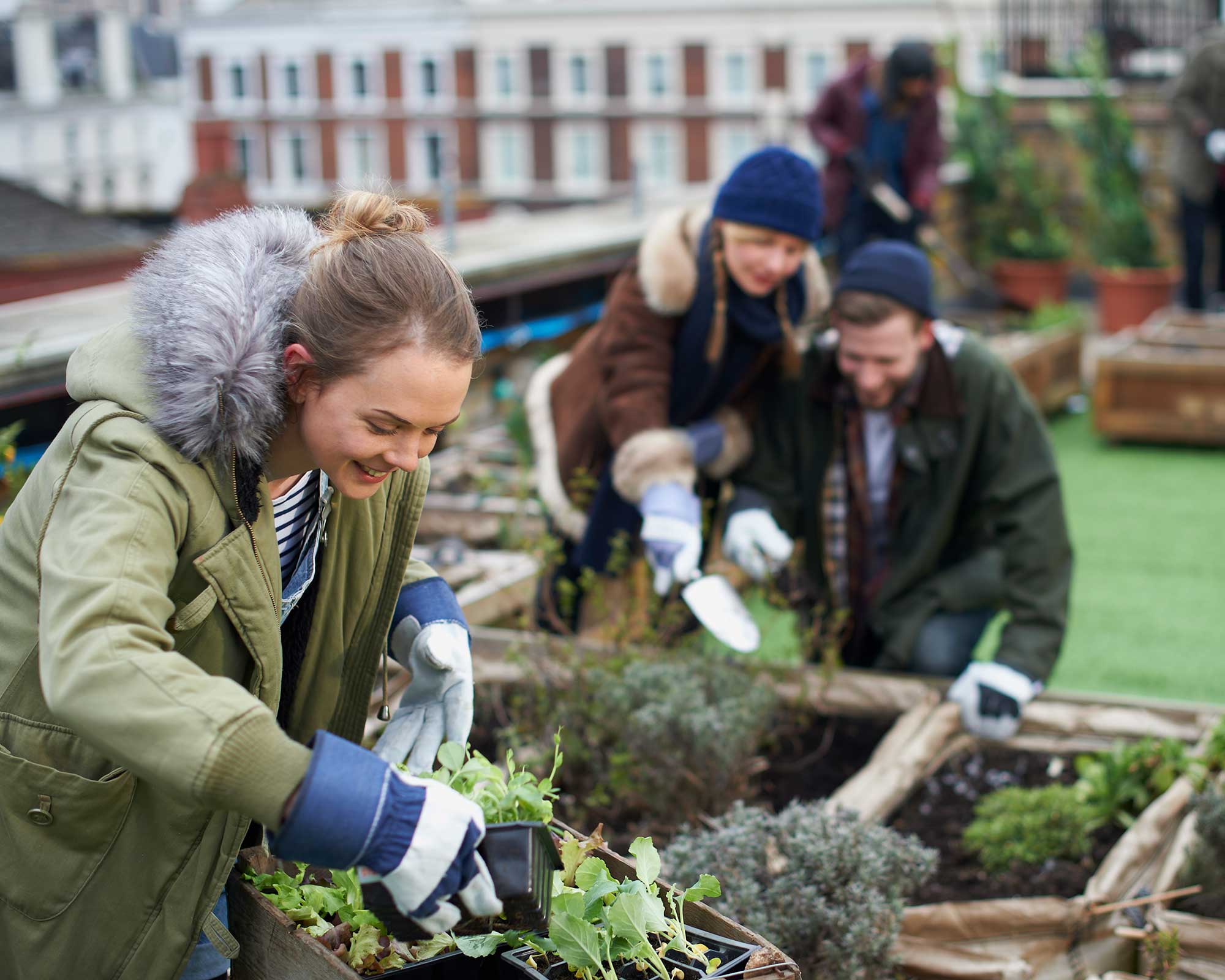
On a psychological level, research shows that gardening can help alleviate depression and anxiety, as explains Sue. 'I find that gardening forces me to slow down, and I like the feeling of being part of something much larger than myself,' she says.
'Tending plants puts us in touch with the cycle of life through which destruction and decay are followed by regrowth and renewal,' Sue continues. 'This means that deep existential processes can be involved in caring for a garden and many people say that it's helped them work through experiences of trauma and loss.'
The process of growing inspires hope and the sense of looking forward – something that Thrive, a gardening-for-health charity, recognizes as integral to mental well-being. Plus, producing vegetables and fruit or learning how to grow flowers from seed gives people a sense of achievement and pride, which boosts self-esteem and confidence.
But, Sue also acknowledges how gardening can be an interactive activity, too. Stephen Buckley, Head of Information at Mind, agrees, saying how spending time in nature can help us connect to each other.
He explains how ecotherapy – a type of treatment that involves doing activities in nature – can help people make new friends and feel more involved within their local communities. 'Ecotherapy or nature-based activities may be particularly helpful for people who are socially isolated or who don't feel comfortable attending other forms of talking therapy,' he explains.
Kathryn Rossiter, CEO of Thrive, says, 'Gardening gives us the perfect environment to connect, be active, take notice, keep learning, and give – the five ways to well-being which are cited by the NHS as important paths to mental health.' It's no wonder that gardening has been described as a 'green pill'.
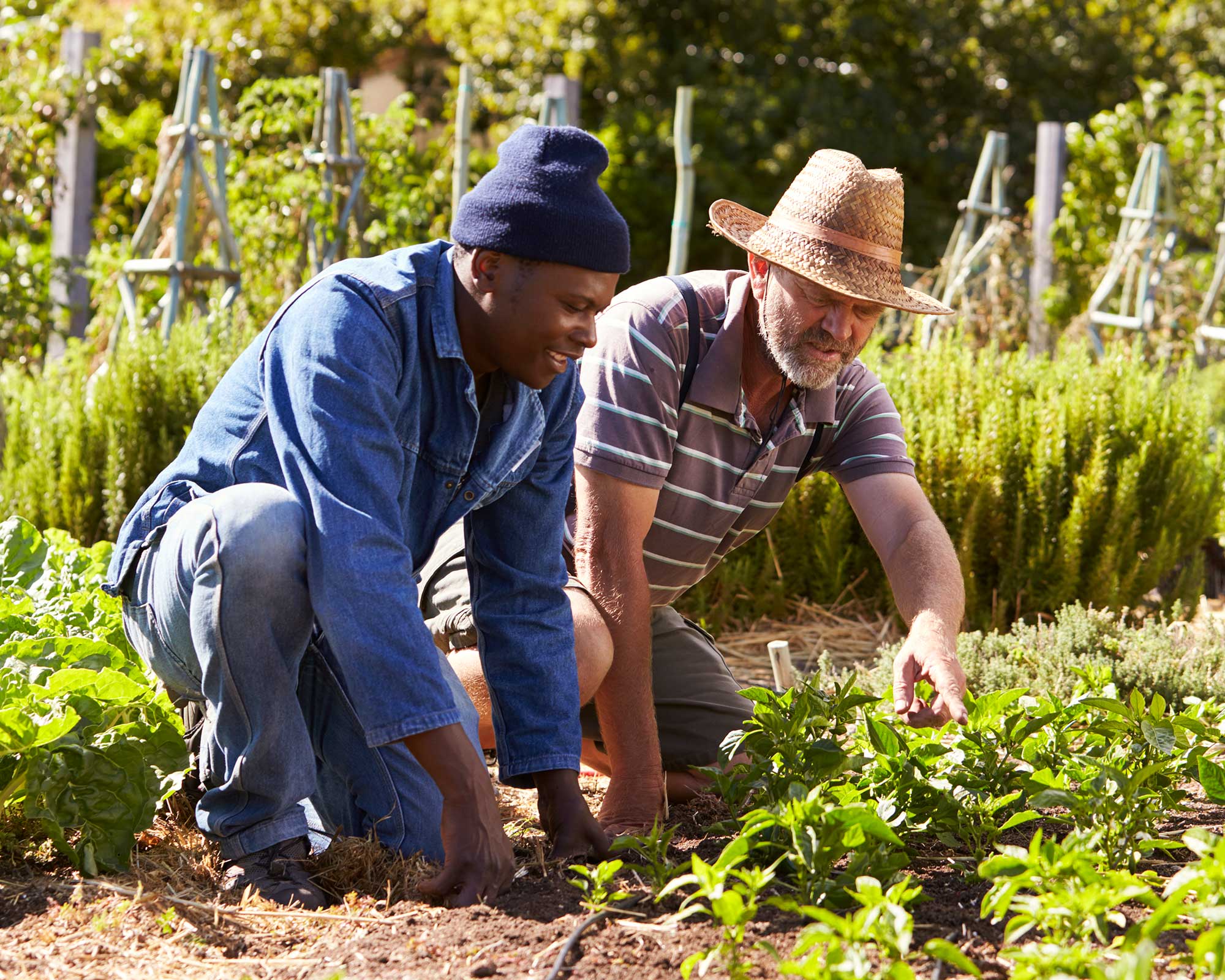
Who gardening can help
This year, Mind will host a garden at the RHS Chelsea Flower Show. Funded by Project Giving Back and designed by eight-time RHS Chelsea gold medal winner Andy Sturgeon, The Mind Garden will encourage all-important conversations about mental health, highlighting the importance of reaching out and seeking support.
In the lead-up to his garden design, Andy met with Mind volunteers who shared their experiences of mental health problems and how gardening and the outdoors have helped them.
Faris is just one example of someone who has found gardening beneficial to his mental well-being. He battles with strong suicidal tendencies and, at times, debilitating depression and PTSD. But, alongside the help from his support system, he has also found solace in tending to his indoor garden.
'I moved to a new apartment almost a year ago and received a few houseplants as a present. I've been looking after them every day since,' he says. 'Gardening helped my mental health unexpectedly. I was going through a bad time and didn't care for my mini bonsai tree. All the leaves fell out, and it appeared to be dead.
'I was really upset and felt really guilty,' continues Faris. But, 'I still had some hope for it, so I gave it some water. I couldn't bear to throw it away.
'Three days later, a new bright green leaf appeared, and I was overjoyed. Now the plant is back to life. The simple process of caring for a living thing makes you feel responsible for its well-being. So, even if I'm having a terrible week, I get myself out of bed and water those plants. Before I know it, I see the life in them, and how the sun dances between their leaves, and I feel glad I'm alive.'
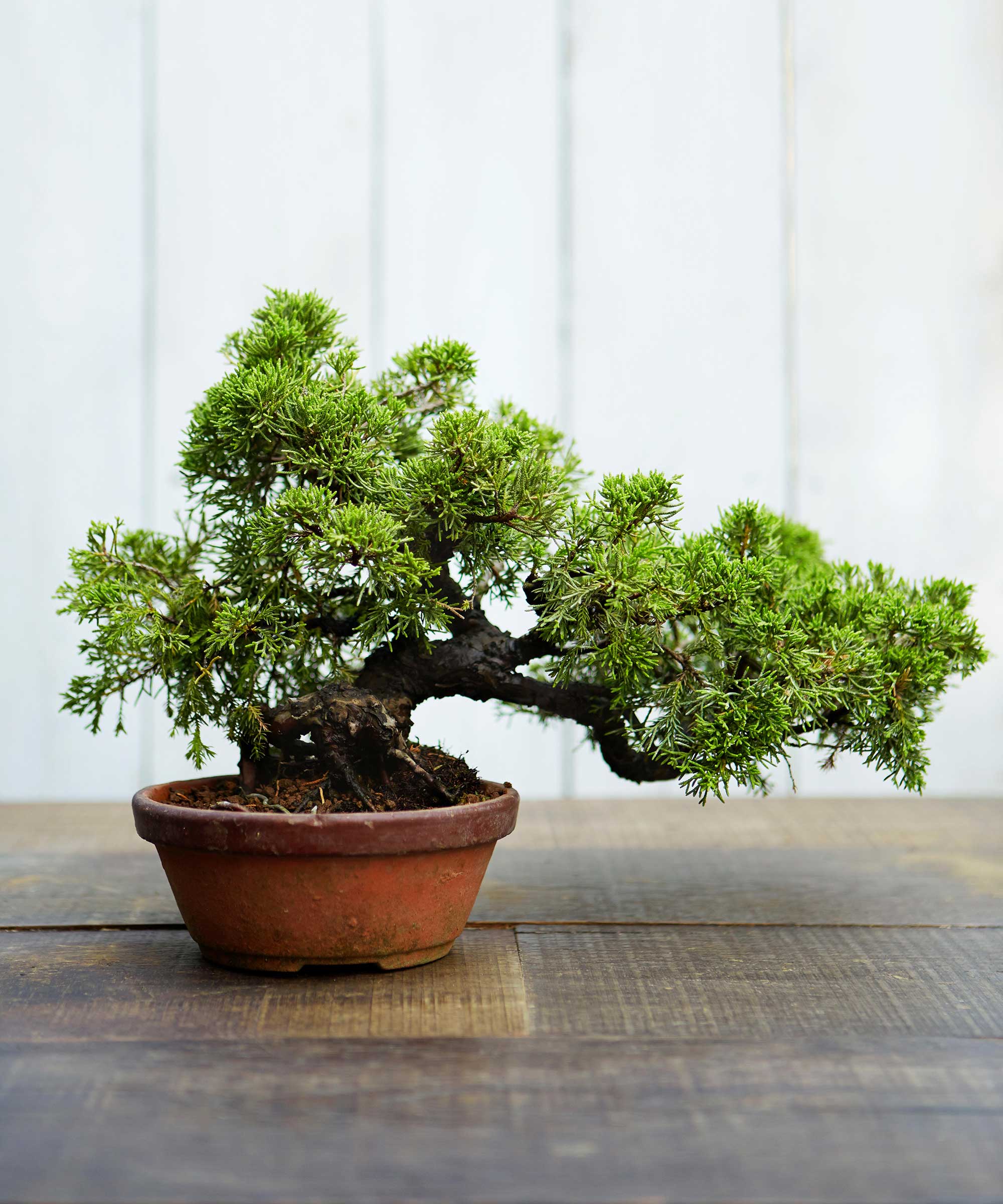
Gardening helps Sarah, too, who participates in one of Thrive's therapeutic horticulture programs – of which nearly 300 people took part last year. Sarah had suffered a severe panic attack that led to her not leaving her home for several years.
She attributes horticultural therapy with healing and helping restore her confidence. 'I feel transformed having been here,' she says, explaining how it's helped her ability to communicate with people and to express herself.
'I feel very safe and cared for. Everybody is so nice, gentle, and understanding,' she says.
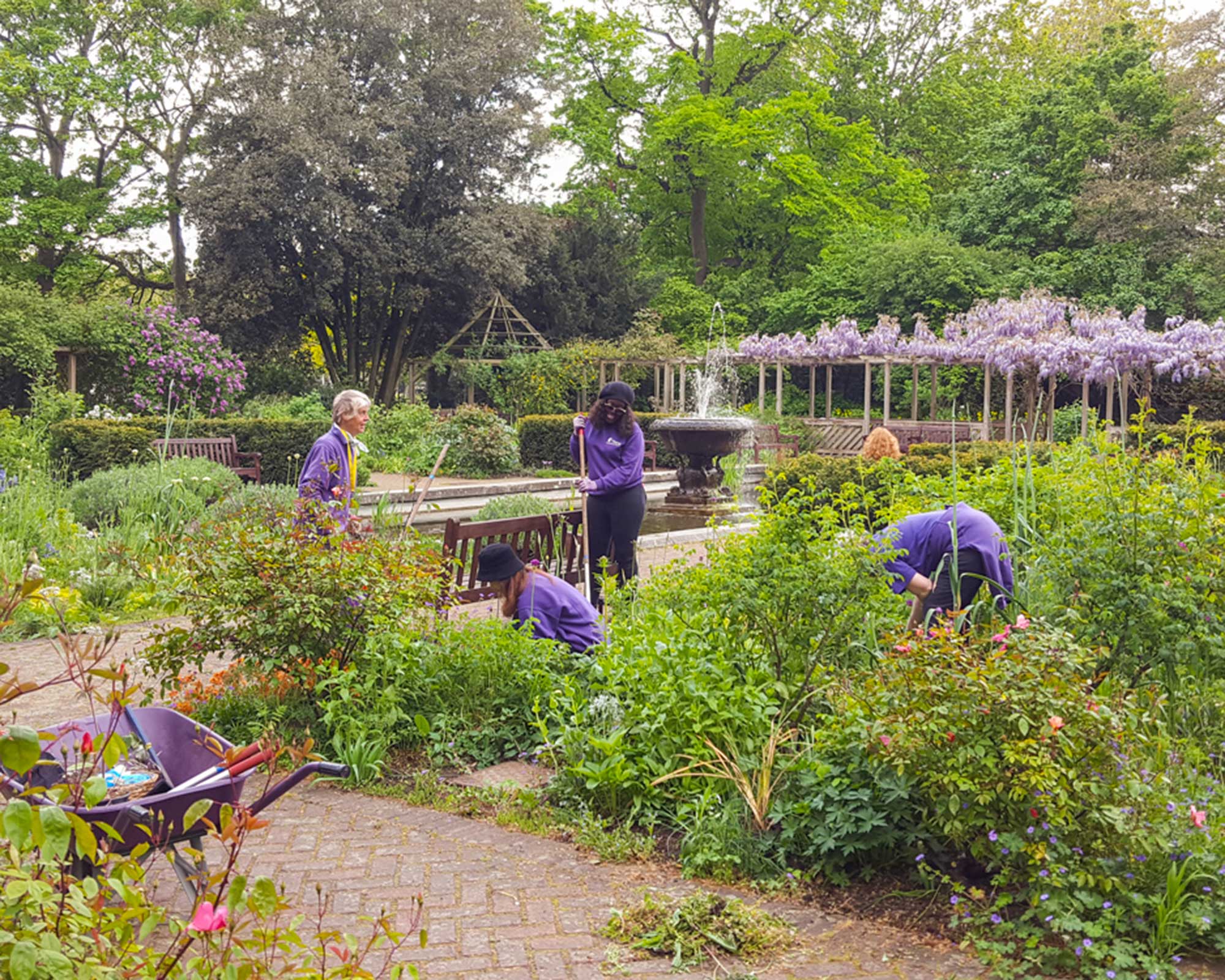
Gardening for illness and injury
Getting outdoors can also be hugely beneficial for those with illness or injury, particularly when accessible garden design is taken into consideration.
Take Shan, for instance, who has MS and uses a wheelchair. To stem the progression of his MS, he joined a Thrive Birmingham Social and Therapeutic Horticulture (STH) program which has helped his limb movement, stamina, and overall outlook. Seeing the difference, his consultant now encourages him to do more gardening.
Gardening is now a strong motivator, getting him up and moving: 'It gets me out of the house,' Shan says. 'It has given me a sense of purpose and structure in my life.'
Curtis also benefited from the effects of gardening on both his mental and physical health. He was involved in an industrial accident that left him paralyzed. After arriving at London Spinal Cord Injury Centre, he soon began to visit Horatio's Garden London & South East daily to see the greenhouse, watch the birds, enjoy the fresh air, and relax. 'The garden has its own healing power. It makes you feel better in yourself,' he says.
Not only that, but one-on-one gardening sessions with Head Gardener Ashley led to an improvement in his dexterity, allowing him to hold small tools and sow seeds. 'I find it therapeutic,' Curtis says. 'Each little movement has helped my hands to remember how to work, particularly positioning my palm in a certain way to plant seeds. It's helped me to get back the movements I thought I'd lost.'
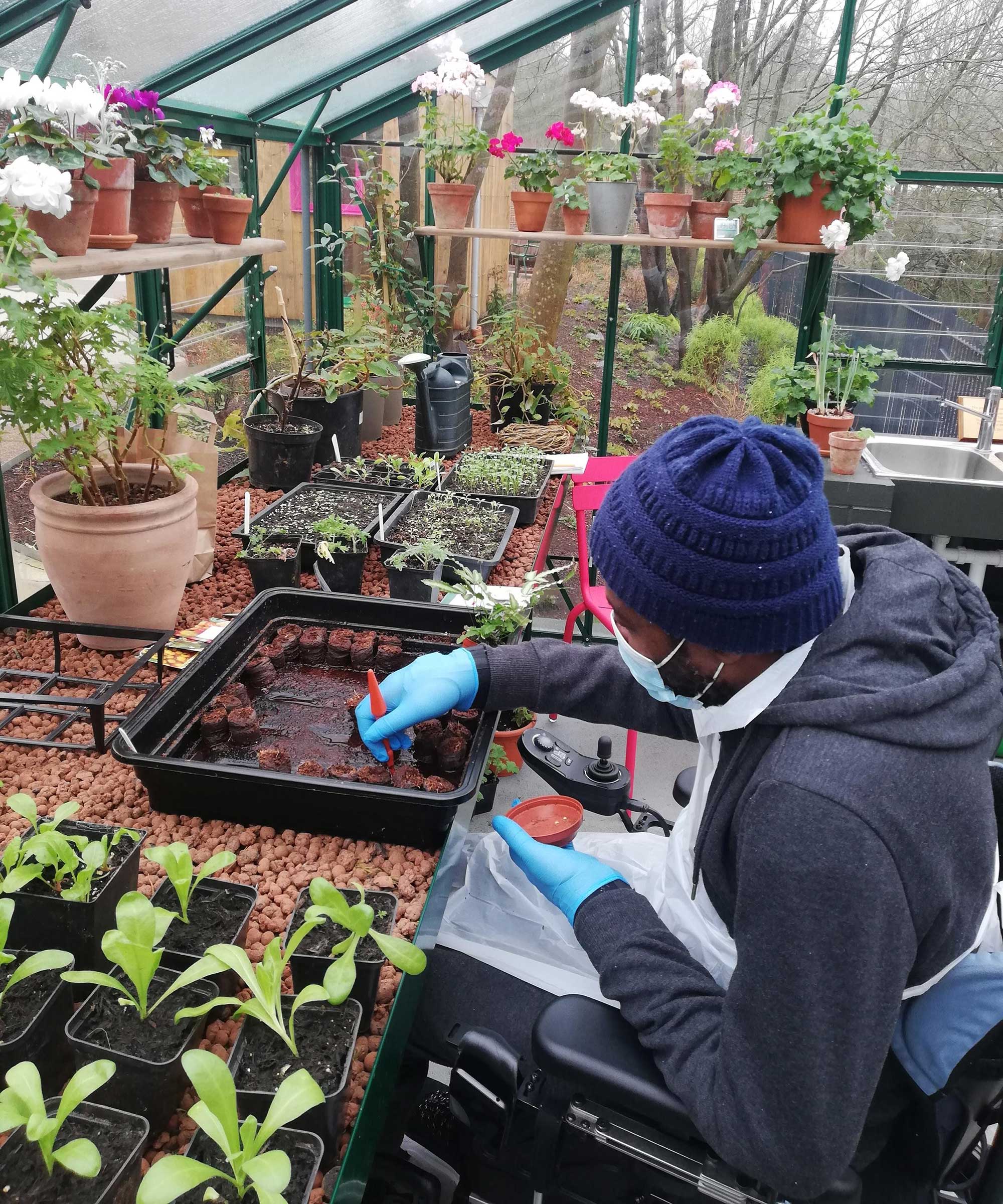
How can you improve your well-being with gardening?
Anyone can get involved with gardening to improve their well-being. It doesn't have to be anything grand or overwhelming – even small steps can have a big impact.
Stephen Buckley from Mind explains a few things you can try:
- Start small. Even small amounts of time in nature can boost our mood. Try spending five minutes paying attention to nature. You can do this outdoors or in your home.
- Grow or pick your own food. We've rounded up some of the easiest vegetables to grow in our guide which are ideal for getting started with. If you don't have access to a garden, you could plant salad leaves or herbs in a window box or plant pot.
- Do what works for you. Try different nature activities to find things you enjoy and that you can fit into your daily life. Try not to worry if something does not work for you.
- Find a gardening community. Apply to share an allotment, or look for community gardens or food growing projects in your local area. If you’re based in the UK, see the National Allotment Society, Social Farms & Gardens, or your local council's website for more information.
- Do things you find relaxing. You might like to sit under a tree, look at the stars or do art activities in natural spaces.
- Find a way to fit your budget. If you are worried about the costs of gardening, look for free swaps or giveaways. For example, you might be able to swap spare seeds with other gardeners at a seed-swap event. Or you could try upcycling old pots, jars, or other household items into plant containers. Our cheap garden ideas have plenty of inspiration to help you get started.
If you are new to gardening or want to deepen your knowledge, Thrive can also help. Their website has step-by-step gardening guides which also detail the health and well-being benefits of activities, as well as instructions on how to do them and what materials and tools might be useful. You can also sign up to their Gardening Club, which offers fortnightly free tips. And, for people with a disability or health challenge, Thrive's Carry on Gardening website has a wealth of information, tips, and resources.
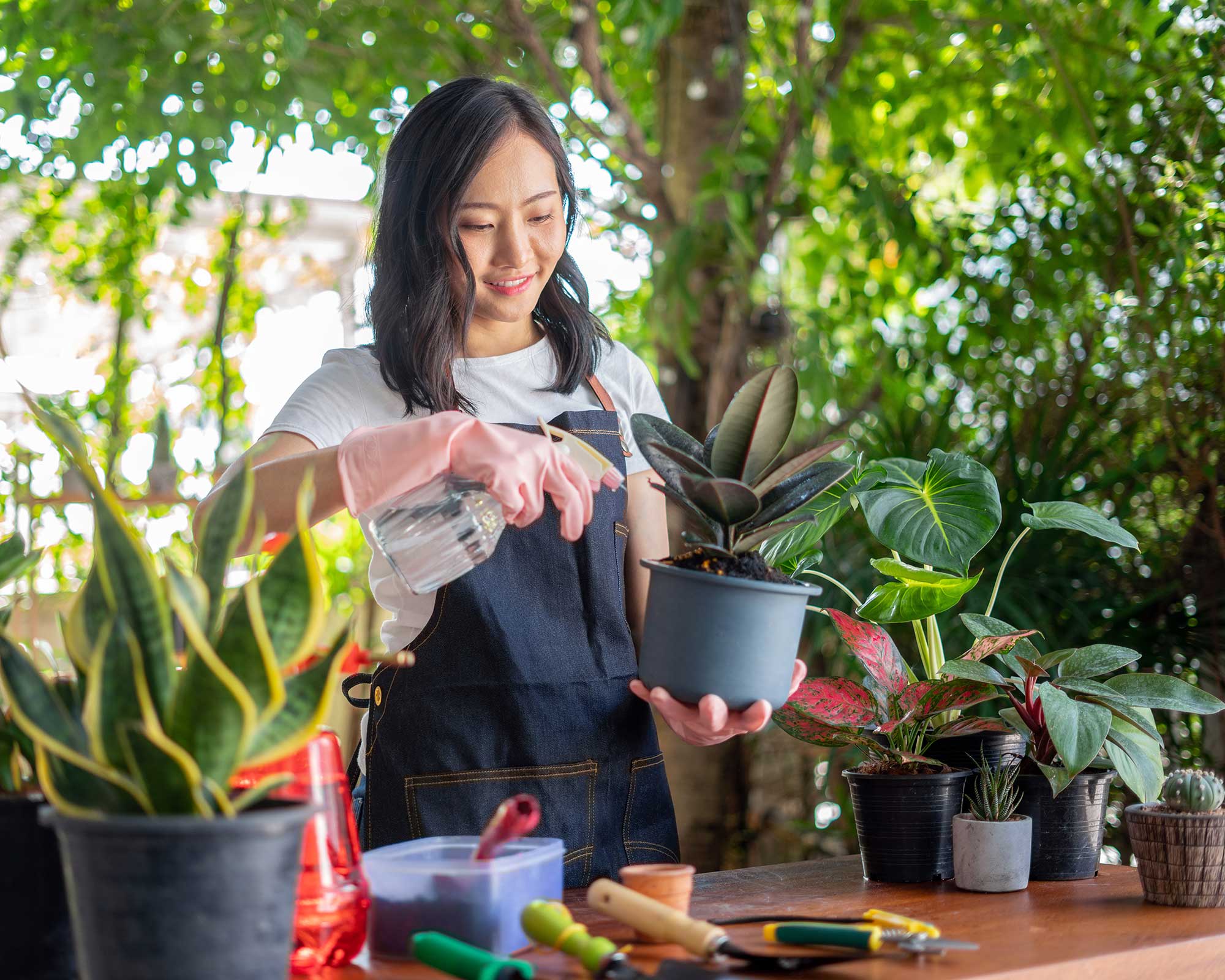
How can you access nature if you don't own a garden?
'It can be hard to know where to find nature,' says Stephen from Mind. 'Many of us do not have a garden. And those of us who live in cities or towns may not live near a park or green space.'
Here are some of his suggestions for you to consider:
- Look for local green spaces. Your local council may have information about parks or nature reserves near you. You can find your local park on the Gov.uk website. Or you could use a walking app to find nearby walks.
- Bring nature indoors. If going outside isn't possible or feels difficult at the moment, you could invest in some of the best indoor plants, or try growing seeds on windowsills. The simple act of nurturing a living thing and watching it grow can give us a sense of achievement.
- Look for nature wherever you are. Nature is everywhere, even in busy towns and cities. Walk around your local area or look out of your window and take notice of trees, birds, insects, the sky, or the weather.
- Connect to others. Your local Mind group may be able to provide details of local projects or ways to connect to nature in your area, including organized groups so that you can meet other people. Or, you may be able to find walking clubs or nature groups through social media or community centers.
- Look for accessible green spaces or activities. In the UK, The Wildlife Trusts have information on accessible nature reserves, while The National Trust and The Outdoor Guide have information on accessible walks. Euan's Guide has disabled access reviews for places across the UK, including parks and green spaces.
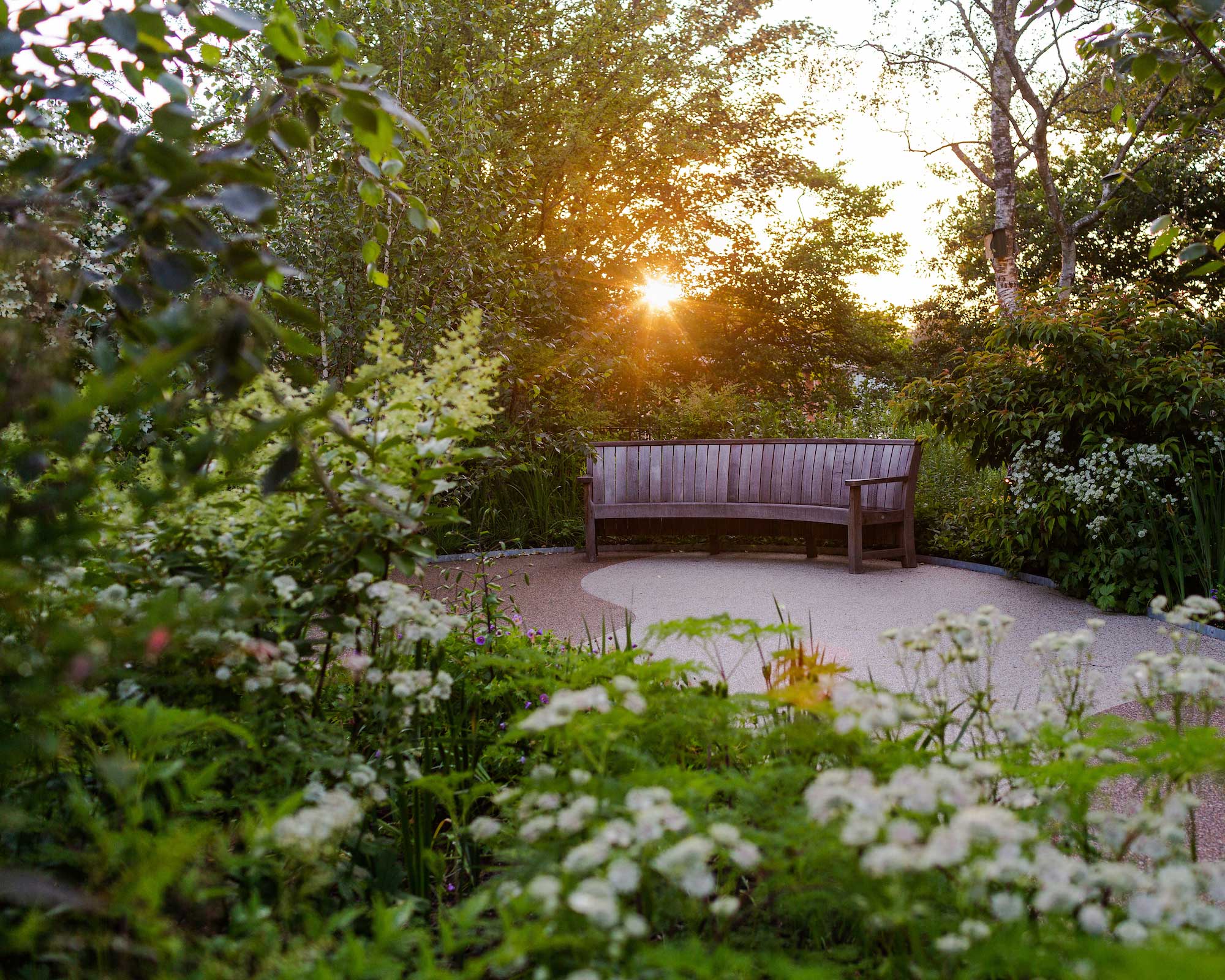
Hopefully, these tips will come in handy next time you feel like you need a boost. And the best part is, fresh air is free.
Personally, there is nothing I enjoy more than noticing the signs of the seasons – be it spring flowers, autumn leaves, or the fresh smell of mowed grass on a summer's breeze. In a busy, screen-dominated society where we often spread ourselves too thinly, spending a bit more time pausing and reconnecting with nature is something I believe we can all benefit from.
This year, I will certainly be aiming to spend more time outdoors, and I urge you to do the same. You may be surprised at what a mental shift it can create.
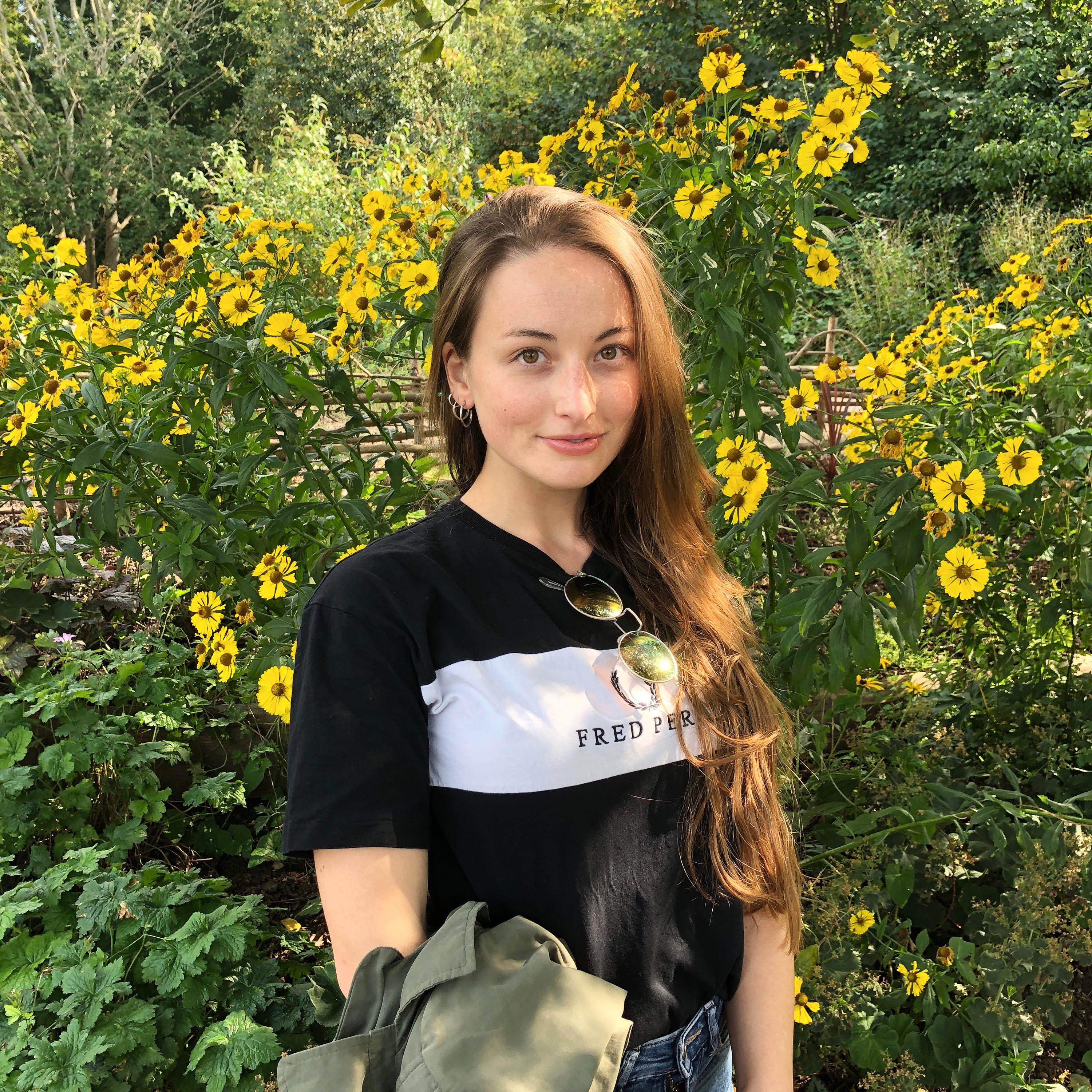
The garden was always a big part of Holly's life growing up, as was the surrounding New Forest where she lived. Her appreciation for the great outdoors has only grown since then. She's been an allotment keeper, a professional gardener, and a botanical illustrator – plants are her passion.
